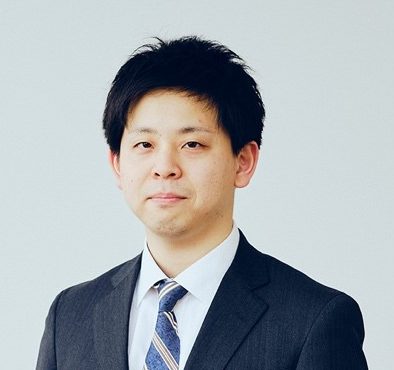Announcement of the 11th Waseda IARBD seminar “Basic study on characterization of nasal mucosal cell sheet in middle ear regenerative medicine”
Yoshiyuki Kasai, Assistant Professor, The Jikei University School of Medicine
The 11th seminar of the Waseda IARBD seminar series was a lecture by Yoshiyuki Kasai, Assistant Professor, The Jikei University School of Medicine. The lecture title was “Basic study on characterization of nasal mucosal cell sheet in middle ear regenerative medicine”.
|
Date : |
1 June, 2022 |
|
Time : |
17:00-18:00 (Japan Standard Time) |
|
Venue : |
Webinar, Zoom (You will know the link after your registration.) |
|
Lecturer : |
Dr. Yoshiyuki Kasai |
|
Title : |
“Basic study on characterization of nasal mucosal cell sheet in middle ear regenerative medicine” |
|
Registration Fee : |
Free |
|
Language : |
English |
|
Registration : |
Please register in the following link: |
|
Closing Date : |
30 May, 2022 |
|
Contact : |
IARBD-Office: IARBD-office@list.waseda.jp |
Biography
Dr. Yoshiyuki Kasai received a Ph.D. in Science from Waseda University in 2017 March under supervision of Professor Naoya Takeda, focusing on an evaluation method for oral mucosal tissues as source of cell sheets and examination of cellular events of epithelial cell sheets after grafting by using in vitro model. His postdoctoral work, with Dr. Hiromi Kojima at The Jikei University School of Medicine, optimized fabrication method of nasal mucosal cell sheet and analyzed its expected function after grafting. Moreover, He evaluated expiry dates and characters of the nasal mucosal cell sheet. These works contribute ongoing clinical trial.
Abstract
Regenerative medicine using cultured cell is an expected emerging therapeutic approach. As otolaryngologic regenerative medicine, we have been conducting research where autologous nasal mucosal epithelial cell sheets are transplanted for severe middle ear diseases. In order to advance this novel therapy, the fabrication method, expiration date, and cell sheet characteristics including differentiation potential should be analyzed.
First, I will present the optimization of cell culture condition of human nasal epithelial cell sheets [1]. Keratinocyte culture medium (KCM) was established by Dr. Green, et al., and has been widely used for fabrication of stratified squamous epithelial grafts. However, the cell number and cell sheet quality were not optimal for regeneration of the middle ear. Here we show that the combination of ROCK inhibitor and Ca2+ regulated the phosphorylation of myosin light chain and improved the fabrication of human nasal mucosal epithelial cell sheets.
Second, I will show temporary storage conditions of the human nasal tissue and cell sheets [2]. In order to transfer material between the cell processing center and operation room, we had to investigate the expiry dates of both nasal tissue and nasal cell sheets. Nasal mucosal tissue can be preserved refrigerated for five days and freeze–thawed over five days. Cell sheets can be stored in Hank’s balanced salt solution for two days.
Third, I will show the results of analysis for character and differentiation potential of human nasal mucosal cell sheets. Nasal mucosal cell sheets cultured with keratinocyte culture medium (KCM) is composed of stratified squamous epithelial cells. Nevertheless, it has differentiation potential to goblet cell, club cell, and multi-ciliated cells.
Taken together, we anticipate that our findings will improve safety and efficacy for transplantation of nasal mucosal cell sheets.
References
[1] Kasai Y, et al., ROCK inhibitor combined with Ca2+ controls the myosin II activation and optimizes human nasal epithelial cell sheets. Sci Rep. 10, 16853, (2020).
[2] Kasai Y, et al., Temporary Storage of the Human Nasal Tissue and Cell Sheet for Wound Repair. Front Bioeng Biotechnol. 9, 687946, (2021).
Organized by the Institute for Advanced Research of Bioscience Dynamics (IARBD)

